Plans unveiled for 'world-class' Exeter medical campus
- Published
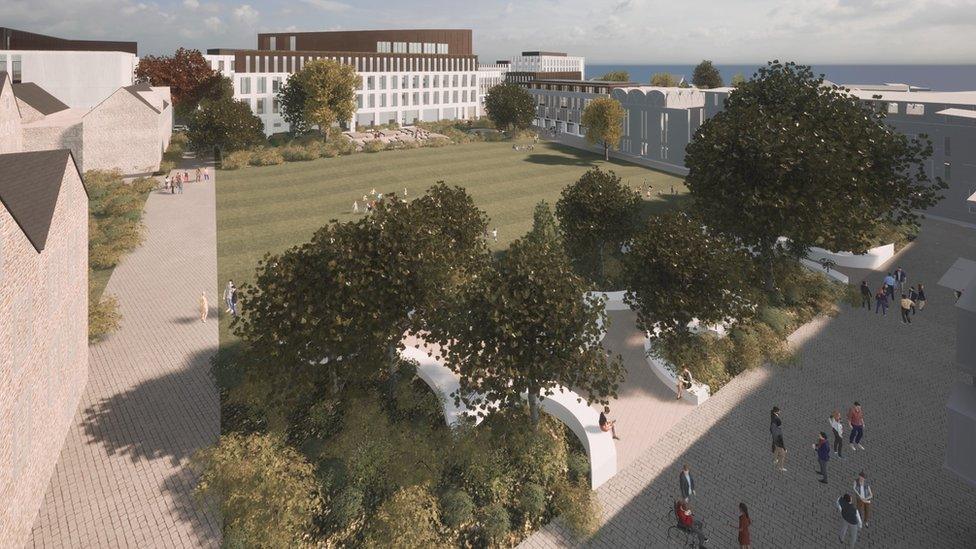
The proposed campus would retain some old buildings and green spaces
Plans for a "world class" redevelopment of a medical campus at a Devon university are to go on show to the public.
The proposals are part of a 50-year plan to redevelop St Luke's Campus, the University of Exeter said.
It would lead to "high quality jobs" and benefit the community, bosses said.
They added biomedical research at the campus would have "direct impacts on patient care" and the centre would offer a "world-class education".
The university said: "The ambitious long term vision is designed to enhance the university's local and global reputation as world-leading for health and wellbeing research and education."
Two public engagement events will take place on Tuesday and 25 April from 13:00 BST to 19:00 at St Luke's Campus on the first floor of Cross Keys Cafe.
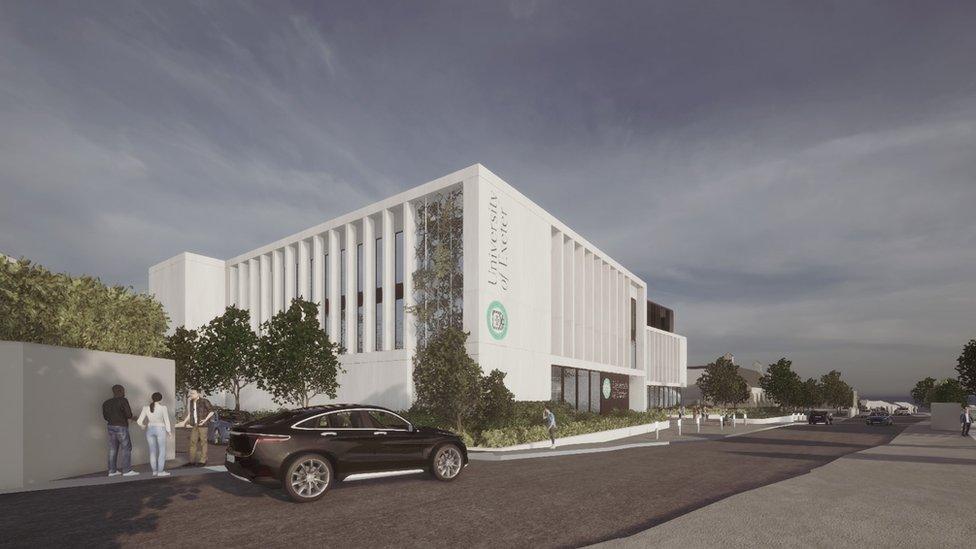
The proposed centre would be "world-class" the university has said
Prof Lisa Roberts, president and vice chancellor of the University of Exeter, said: "It will put us in an incredible position to translate our research into new treatments and technologies, and provide medical education to train tomorrow's future health leaders and researchers."
The proposal cites an intention to keep the campus "open and available" as a community asset.
The university said there could be seven new buildings as well as keeping current ones and public green spaces.
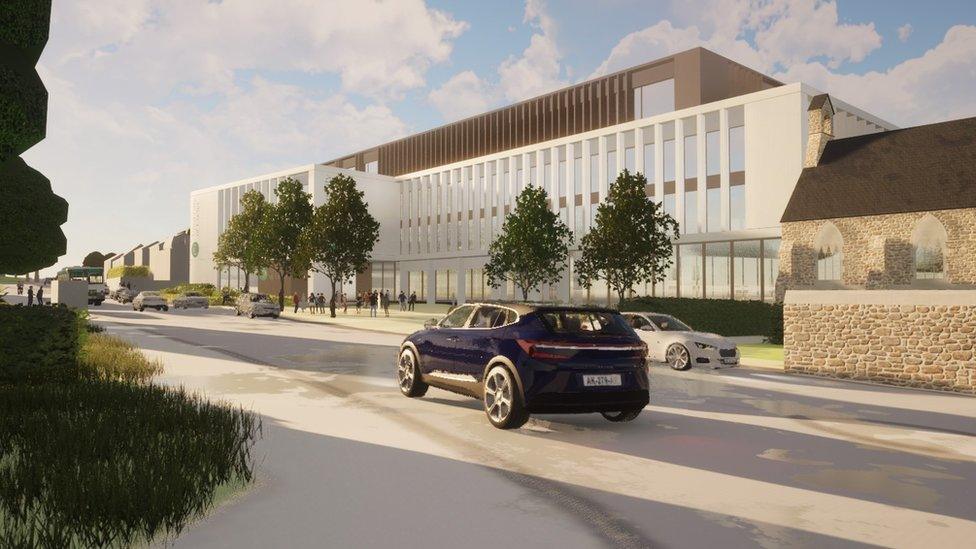
The proposals outline seven new buildings
Prof Richard Smith, from the Faculty of Health and Life Sciences, said public feedback had suggested "retaining historic buildings and green spaces".
Meanwhile, the chapel and cloister buildings would be "enhanced".
Founded in 1854, St Luke's started as a teacher training college, which continues now alongside a growing focus on health and wellbeing since the medical school was established a decade ago, the university said.
It now also houses the Academy of Nursing, as well as training for doctors, medical scientists and radiographers.
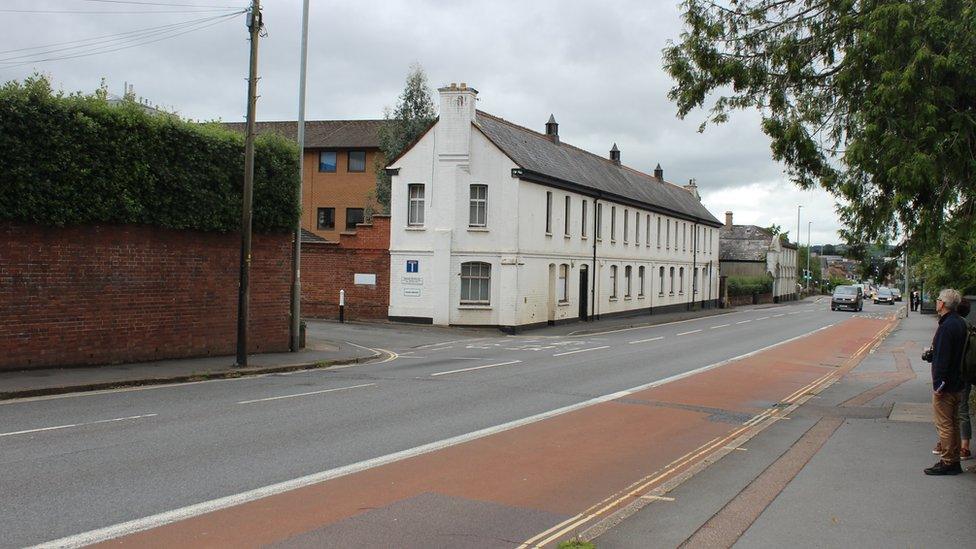
The current site
It is home to the UK's first National Rapid Whole Genome Sequencing Service for the diagnosis of children and babies with rare genetic diseases.
Sam Higginson, chief executive officer for the Royal Devon University Healthcare NHS Foundation Trust, said: "Developing our world-class facilities will help us continue to promote the south west as a leader in the sector."
Each building and area in the development would need planning approval from Exeter City Council, with "further public consultation" to take place before any construction.

Follow BBC Devon on X (formerly Twitter), external, Facebook, external and Instagram, external. Send your story ideas to spotlight@bbc.co.uk, external.
Related topics
- Published10 April 2024
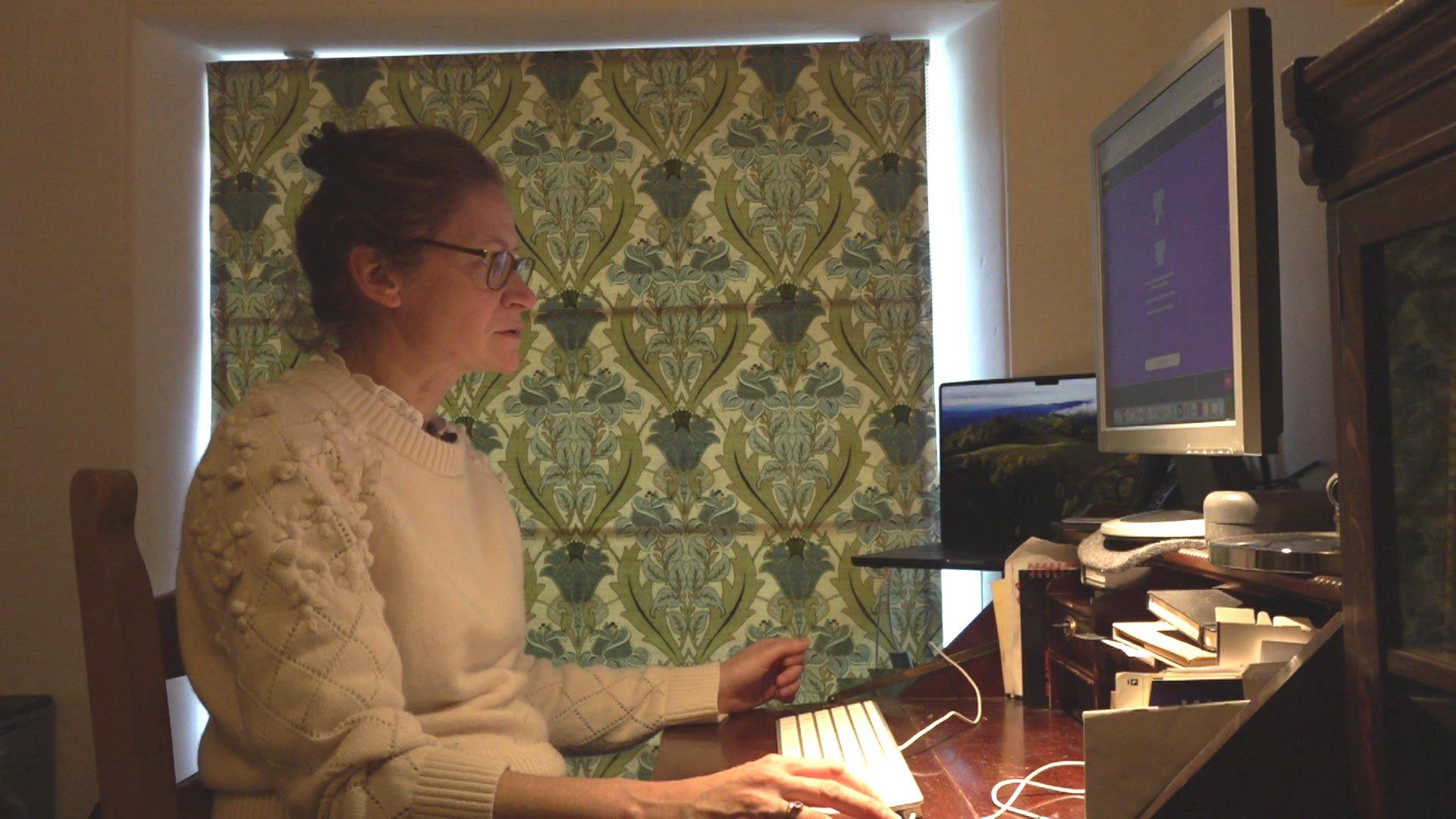
- Published20 January 2024

- Published6 March 2024
